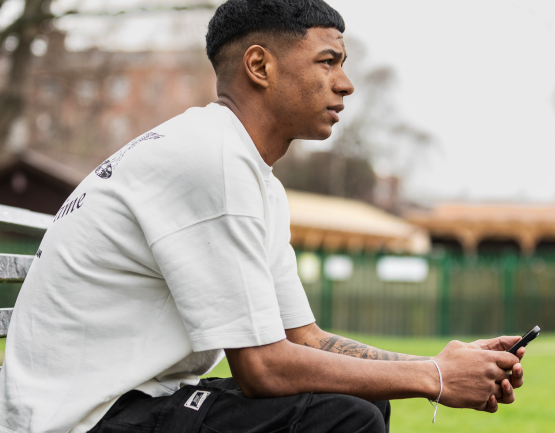What is depression?
What is depression?
What is depression and what can contribute to it?

Depression is a term that is used in many different ways by different people. Commonly, people use the word depression to describe feeling sad, upset, or fed up.
Many of us describe things, such as news stories, as ‘depressing’. We may also describe ourselves as being depressed at different times in our lives and for different lengths of time.
What are the symptoms of depression?
The word ‘depression’ is also used in a formal sense by doctors to describe a set of symptoms. These symptoms must have been experienced over a sustained period of time. They include things like:
- Feeling sad or down
- Having low energy
- Struggling with sleep
- Difficulties with appetite
- Poor concentration
- A loss of interest in things that we would usually enjoy.
To determine what is going on for someone, a doctor will usually ask about experiences, how long things have been going on for, and the impacts on someone’s life. If the symptoms have been present for a long time or have been preventing someone from doing the things they would normally do, they may offer a diagnosis of depression.
While some people find a medical diagnosis of depression can help them make sense of their experience, at Jigsaw, we tend not to focus on diagnosis. We support young people to understand and manage the experiences they have.
We look at the things around them and what is going on in their life that may be impacting how they are feeling. Find out more about Jigsaw’s approach to mental health and how to access Jigsaw.
Is there a test for depression?
You may come across ‘tests’ or checklists online which suggest they can tell you whether you have depression or not. These are rarely evidence based or reliable. If you go to a doctor, they may ask you to complete a checklist to give them a greater understanding of your experiences. They will also ask further questions to help build up a picture of what is going on for you.
Whether we have a formal diagnosis of depression or not, if we are low or sad, it’s important to find ways to cope with these feelings. Check out ‘feeling down’ for ways to help.
What causes depression?
If we feel something is not quite right, we generally want to know the reasons why. We can start looking at cause and effect. It can be reassuring to think that ‘because of X, I feel Y’. However, when it comes to mood, the idea of cause and effect can be a little simplistic.
Sometimes our feelings may be clearly linked to a specific event. This could be a relationship breakup or bereavement for example. Other times it can be really difficult to see why we feel a particular way.
It is often a buildup of lots of different things which contribute to the way we feel. Alcohol and some drugs can act as depressants, often contributing to our experience of low mood.
What can I do if I think I’m depressed?
If you are struggling with feeling low, there are lots of things you can do. Start with finding out a bit more for yourself.
- Write it down
Try to write out how you’re feeling. Try to keep an eye on how long things have been going on. Writing down our feelings can help get clarity about our thoughts. It will also help give a picture of what’s going on if you do choose to seek formal help.
- Learn more
There are also some good apps for people who are struggling with their moods. Learn more about the different ways you can get support at Jigsaw.
- Share it
It would be good to share how you feel with someone you trust. Talk to a friend or trusted adult about how you have been feeling. Or talk about what’s bothering you with a member of the Jigsaw team with our 1:1 Live Chats.

Get support
We can support you in a number of ways:


